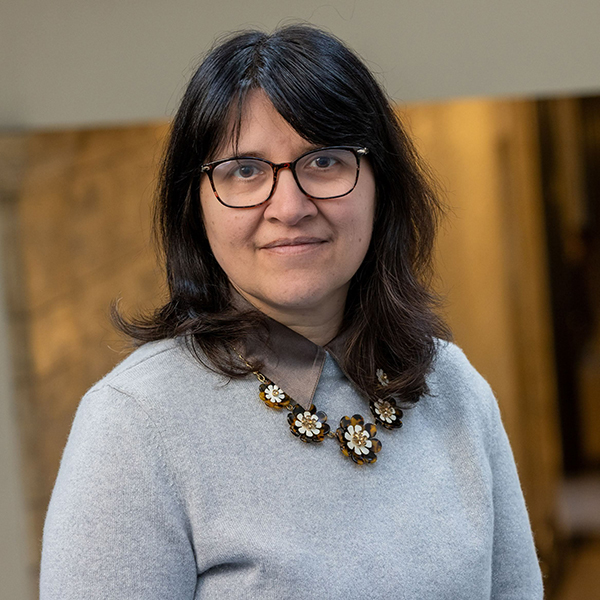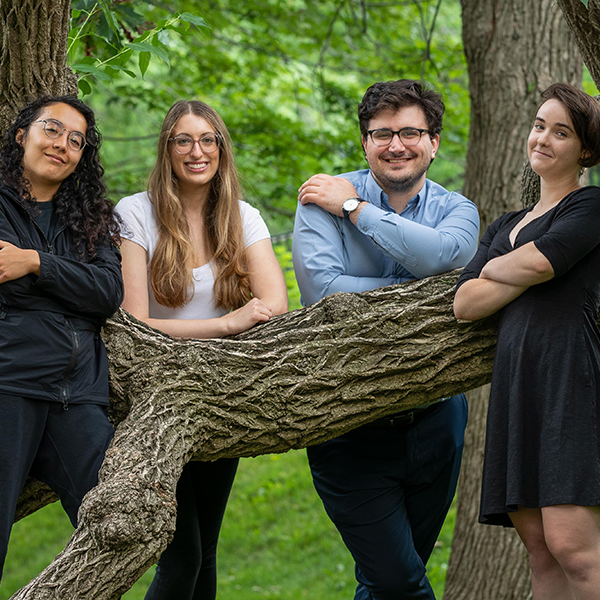With ever-increasing concerns about technology, media, disinformation, misinformation, online security, as well as attacks on democracy (to name just a few issues), Taylor Owen has a lot to contend with these days.

Owen is the founding director of the new Centre for Media, Technology and Democracy at McGill’s Max Bell School of Public Policy (MBSPP). The centre was launched in October and its arrival is timely for a society grappling with myriad issues associated with the rapid development of technology.
“There’s been a real change in how citizens view the role of technology in their lives,” says Owen, McGill’s Beaverbrook Chair in Media, Ethics and Communications and an associate professor at the MBSPP.
“Social media, new technologies and applications were once broadly viewed as positive and certainly aligned with a democratic society. I think in the past five years we’ve seen some of the risks of these technologies and we are now at a critical point where we need to make changes in the way we govern our media and tech infrastructure.”
That’s exactly where the new centre fits in. The goal is to produce critical research that informs the public debate and policy makers about the changing relationship between media and democracy. This, in turn, is designed to help generate policies aimed at maximising the benefits – and minimizing the harm – inherent in emerging technologies.
To meet this challenge, the centre already boasts an interdisciplinary team of dozens of researchers and collaborators employing a variety of research methods including surveys, social media monitoring, policy analysis, journalism, and ethnographic study (embedded researchers in virtual communities).
The core team is complemented by an advisory board of experts including McGill’s Gabriella Coleman (Wolfe Chair in Scientific and Technological Literacy) and Derek Ruths (an associate professor of computer science), as well as Craig Silverman, media editor at Buzzfeed News.
The centre is focusing on three major research streams: technology governance, information ecosystems, and media and journalism. Current projects include initiatives on facial recognition policy, children and technology, surveillance tech, journalism policy and platform support for media.
Among the major projects underway is Tech-Informed Policy, a collaboration with Ruths that develops policy briefs aimed at demystifying new technology for policy makers. Another project is the Canadian Commission on Democratic Expression, a four-year collaboration with the Public Policy Forum, an independent, non-profit Canadian think tank based in Ottawa. The commission is chaired by former Supreme Court of Canada Chief Justice Beverley McLachlin and is exploring digital hate speech policy in Canada.
Perhaps most germane to current concerns about social media is a project called the Media Ecosystem Observatory, which combines large scale media monitoring with survey research to study the behavioural impact of misinformation and disinformation.
“The observatory seeks to use open methods to better understand the nature and character of the public conversation that is increasingly moving to privately-owned spaces like Facebook, Twitter and YouTube,” says Owen who was previously an assistant professor of digital media and global affairs at the University of British Columbia and the research director of the Tow Center for Digital Journalism at the Columbia School of Journalism.
The central objective common to all these projects is to engage the public (through podcasts, events and media) and share research with public policy makers. The centre is already contributing to the development of government policies to address issues arising from new technologies, both in Canada and internationally. In recent months, Owen and his colleagues have provided briefings to the federal government on the functionality and potential issues arising from the COVID-19 alert app, on upcoming digital hate speech legislation, and on the social adoption of COVID public health measures.
“We’re looking at issues that are highly technical and which governments are actively working on,” he says.
One of the challenges in trying to shape public policy is that many technology issues affect multiple government departments. Facial recognition software is a good example. From a public safety perspective, it’s a desirable tool for security whereas, from a justice and legal perspective, it opens up the question of individual privacy and data sharing.
“It’s tricky to figure out how to navigate all those different interests within government,” says Owen. “But there is definitely an appetite out there for the kind of expertise and research we have to offer.”
That appetite is destined to become bigger as governments try to come to grips with large tech companies (like Facebook and Google) which have grown dramatically (both in size and influence) with few limitations.
“When you have a set of technologies and businesses that are largely unregulated and exert a negative impact on society, governments start trying to figure out how to approach governance or regulation,” says Owen. “We want to make sure they’re being informed by the best research out there.
“I think it is essential for our democracy that we figure out how to get a handle on some of the pernicious side effects of platforms,” he adds. “I think it’s an emergency.”


